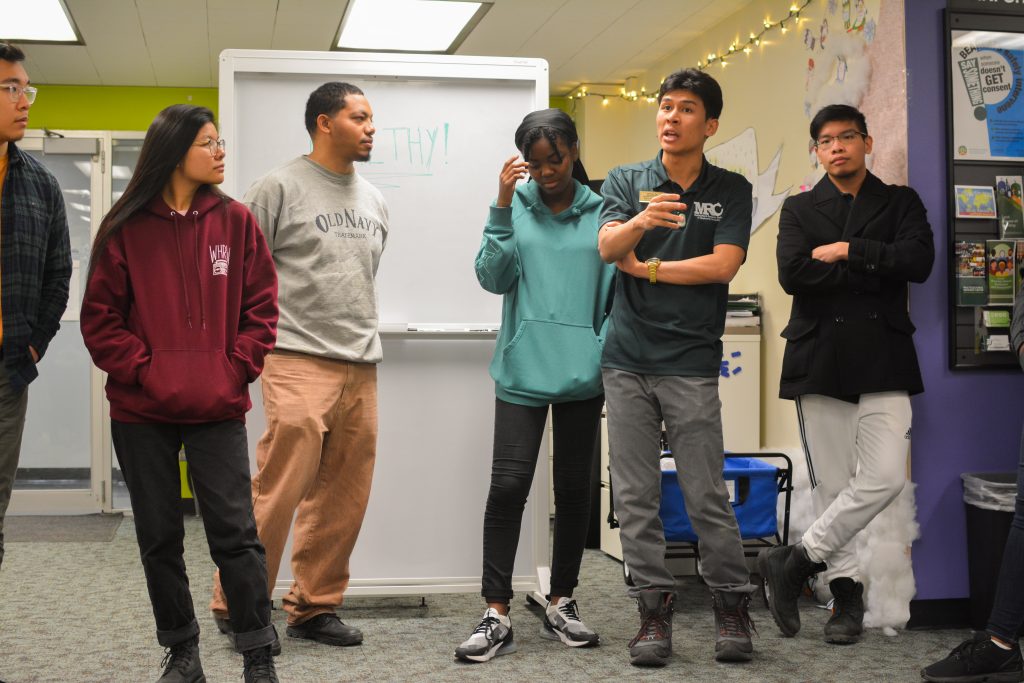
With Valentine’s Day in full swing, the Multicultural Resource Center (MRC) held a workshop on Monday to teach students how to avoid abusive relationships and build healthy ones.
The event was organized by the MRC and the University Counseling Center (UCC) with the goal of informing students about the signs of unhealthy relationships and the resources available to them.
Noah Salwen, student manager of the MRC and a junior majoring in political science, said he felt that the week of Valentine’s Day was the right time to hold the event, allowing participants to learn about unhealthy relationships while simultaneously celebrating healthy ones.
According to Arlene Arisme, a senior counselor at the UCC, communication, trust, respect, boundaries and support are the building blocks to a successful relationship.
“We need communication in all areas of our life, spanning from being here at Binghamton and communicating with your professors, communicating with your friends here, meeting new people, being on organizations and all of that involves communication,” Arisme said. “Those healthy relationships can start to foster and build that skill within you.”
Arisme said the most important part of a relationship is individual identity and freedom. She also noted that unhealthy relationships are not just limited to romantic partners or physical and sexual abuse — they can be found in friendships and familial relationships as well and may include emotional and verbal abuse.
“It could be someone having to approve everywhere you go,” Arisme said. “It could be having to FaceTime someone every time on a phone call. It could be a friend that gets mad at your every time you go out with your other friends. It may not be as explicit but it’s still something you should still consider.”
Darren Yu, a first-year graduate student studying business administration, added that a relationship needs respectful reciprocity.
“Respectful reciprocity means when one side of the relationship is expressing something, it is returned,” Yu said. “It basically means showing mutual respect to each other.”
To avoid unhealthy relationships, Arisme told students to be aware of how their actions impact others. She recommended understanding and honoring boundaries and being aware of one’s personal values before entering a relationship.
She also discussed resources available to students, which include the UCC, the Office of Student Conduct, the Dean of Students’ office and CARE Team.


